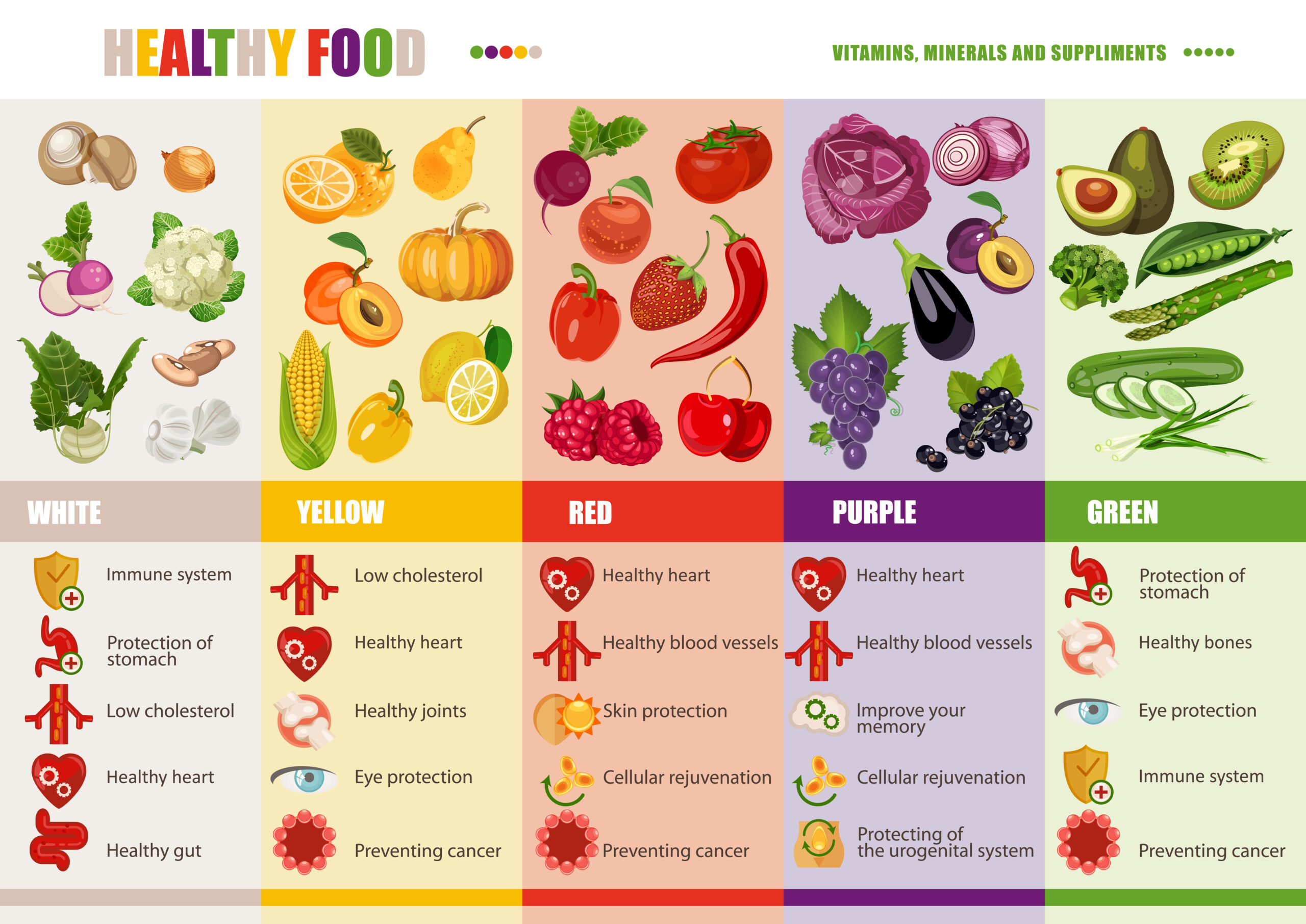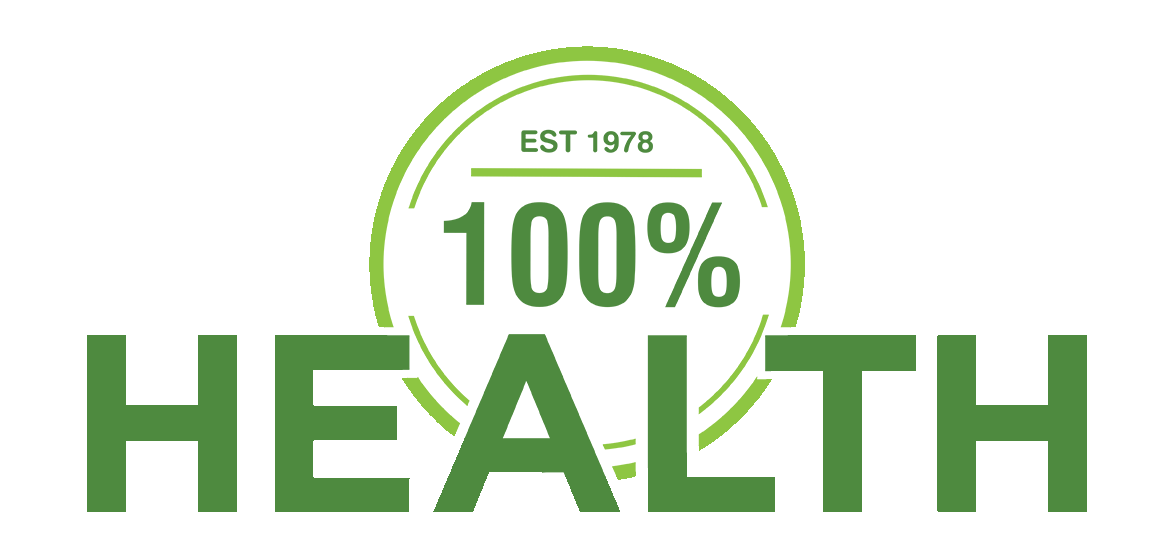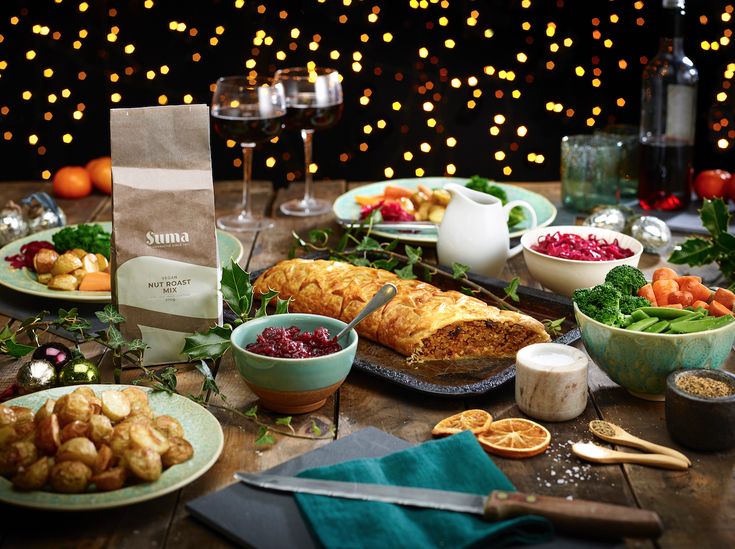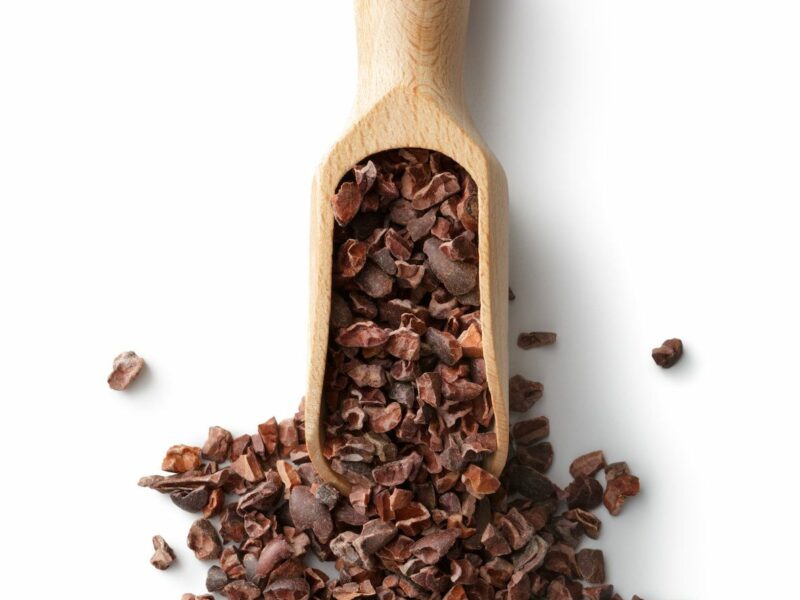
EAT THE RAINBOW
Eating the Rainbow is another way of saying eat a variety of different fruit and vegetables each day. It’s a really good way of getting a balance of essential nutrients as well as getting some interesting, flavourful food in your diet.
Rainbow colours and their sources:
Red indicates the presence of lycopene, a carotenoid pigment that has antioxidant properties and may help reduce blood pressure and cholesterol.
Found in Apples, strawberries, cherries, raspberries, beetroot, tomatoes, red peppers, and watermelon
Orange is high in carotenoids, such as alpha-carotene and beta-carotene which the body converts into vitamin A.
Found in carrots, pumpkin, orange peppers, sweet potatoes, and cantaloupe melon.
Yellow is high in caratenoids including beta-carotene and beta-cryptoxanthin.
Found in Butternut squash, honeydew melon, lemons, papaya, peaches, swede, yellow peppers
Green comes from Chlorophyll, a powerful antioxidant associated with protecting against premature ageing. two carotenoids called lutein and zeaxanthin. Many green vegetables also contain other beneficial nutrients such as lutein and zeaxanthin.
Found in Apples, asparagus, avocados, celery, courgettes, cucumbers, green grapes, leeks, lettuce, limes, mange tout, sugar snap peas.
Blue and purple, along with deep reds and black pigments, indicate the presence of anthocyanins, compounds with antioxidant properties that may help delay cellular aging and fight free radicals. Purple beetroot is rich in nitrates, which may help reduce blood pressure.
Found in Aubergines, blackberries, blackcurrants, purple grapes, red cabbage
Colourless foods can also be good sources of nutrients. For example parsnips and bananas are rich in potassium. White/beige anthocyanins fruits and vegetables include bananas, celery, garlic, Jerusalem artichokes, mushrooms, onions, turnips
For more details on eating the rainbow, see Nakd foods




